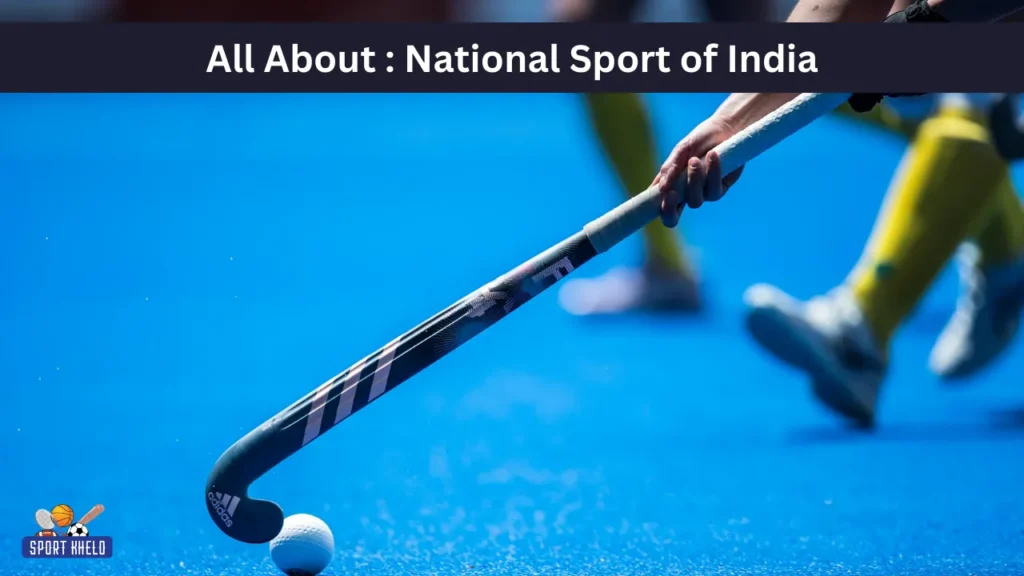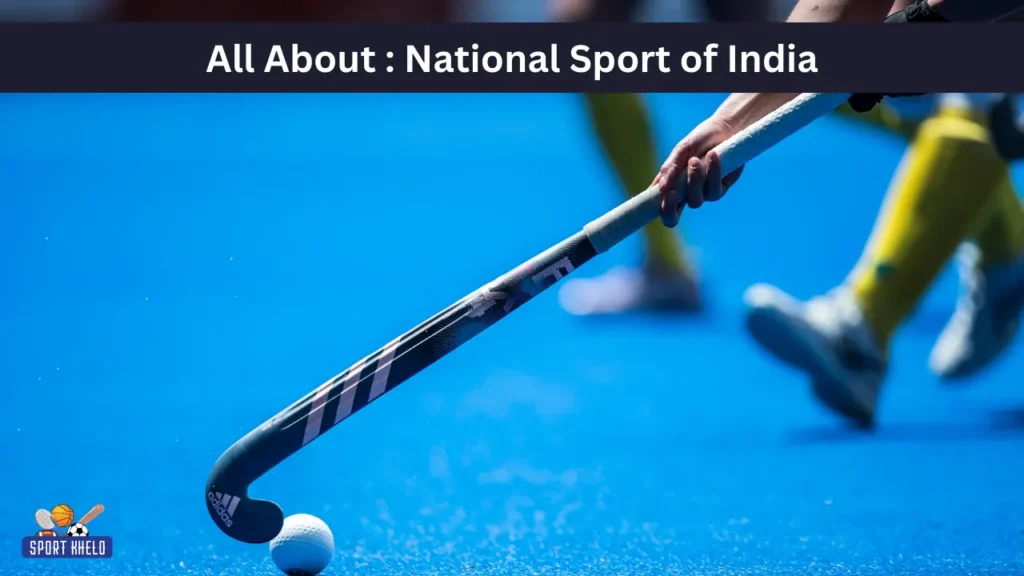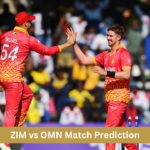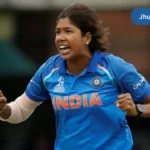National Sport of India
Field hockey, widely regarded as the national sport of India, holds a deep-rooted significance in the country’s sports culture. With a remarkable history and a string of impressive achievements, India’s prowess in field hockey has earned the sport its rightful place in the hearts of millions. In this article, we delve into the glorious legacy of field hockey, its importance to India, and its impact on the nation’s sporting identity.

The Rich History of Field Hockey in India:
The history of the national sport of India, field hockey, is a captivating tale that spans over a century. Introduced during the British colonial era, field hockey quickly gained popularity among the Indian population and went on to become an integral part of the nation’s sporting fabric.
Field hockey arrived on Indian soil in the late 19th century when British soldiers and colonial administrators introduced the game. Initially, it was played predominantly by the British expatriates, but it soon caught the attention of Indian players, who saw it as an exciting and competitive sport.
The first official Indian field hockey club, the Calcutta Hockey Club, was established in 1885, marking the beginning of the sport’s organized presence in the country. The club played a pivotal role in popularizing the game among Indians, leading to the formation of regional and national hockey associations.
In 1926, the Indian Hockey Federation (now known as Hockey India) was formed, cementing the sport’s administrative structure and laying the foundation for the national team. Just two years later, in 1928, India made its debut at the Olympic Games in Amsterdam, Netherlands, marking the start of a remarkable journey that would make hockey an integral part of India’s national identity.
India’s entry onto the international stage was nothing short of spectacular. The Indian men’s field hockey team won their first Olympic gold medal in their debut appearance at the 1928 Games. This triumph marked the beginning of an era of dominance, as India went on to secure six consecutive gold medals at the Olympics from 1928 to 1956. These victories included triumphs in Los Angeles (1932), Berlin (1936), London (1948), Helsinki (1952), and Melbourne (1956).
During this golden era, Indian hockey players became national heroes, with their exploits on the field capturing the imagination of the entire nation. Legendary players such as Dhyan Chand, Balbir Singh Sr., and Leslie Claudius etched their names in history, leaving an indelible impact on the sport.
Field hockey’s popularity soared in India during this period. The sport became a symbol of national pride and unity, transcending regional and cultural differences. People from all walks of life rallied behind the national team, and hockey matches became grand spectacles, attracting large crowds and fervent support.
In addition to their Olympic success, the Indian men’s team also excelled in other international competitions. They won the prestigious Hockey World Cup in 1975 and 1978, further solidifying their reputation as one of the world’s finest hockey nations.
While the men’s team garnered most of the attention, Indian women’s field hockey also had its share of success. The women’s team won the gold medal at the Asian Games in 1982 and has consistently performed well in regional and international tournaments.
However, in recent years, India’s dominance in field hockey has faced challenges from other emerging hockey nations. Nevertheless, the sport remains deeply ingrained in India’s sporting landscape. Efforts are underway to revitalize and rejuvenate Indian hockey, with a focus on grassroots development, modern training methods, and international exposure.
Today, field hockey continues to inspire young athletes across India, who dream of emulating the successes of their hockey heroes. The sport’s rich history and legacy serve as a constant reminder of India’s glorious past and its enduring passion for field hockey.
Achievements and Glorious Moments:
One cannot discuss the national sport of India without acknowledging the remarkable achievements of the Indian field hockey teams. The Indian men’s team has achieved unparalleled success, winning an impressive total of eight Olympic gold medals. Notably, from 1928 to 1956, they secured six consecutive Olympic titles, a record that still stands to this day. India’s women’s field hockey team has also made its mark, clinching gold medals in the Asian Games and other prestigious tournaments.
Field Hockey’s Impact on Indian Sports Culture:
Field hockey has had a profound impact on India’s sports culture, playing a crucial role in shaping the nation’s sporting identity. The sport has captured the imagination of generations, inspiring numerous young athletes to take up field hockey as their chosen discipline. The passion and fervor displayed by Indian hockey fans are unparalleled, as they cheer on their national heroes and celebrate the sport’s rich legacy.
Promotion and Development of Field Hockey:
To further strengthen the sport and provide opportunities for aspiring players, India has established various initiatives and organizations. The Hockey India League, a professional league featuring both national and international players, has been instrumental in promoting the game and nurturing talent. Grassroots development programs, training academies, and tournaments at various levels have also played a significant role in nurturing young talent and maintaining India’s competitive edge in field hockey.
Looking Ahead:
As India looks toward the future, there is a renewed focus on enhancing the performance and visibility of field hockey on the global stage. The recent successes of the men’s and women’s teams have sparked renewed interest in the sport, and efforts are underway to strengthen infrastructure, coaching programs, and talent identification systems. With sustained dedication and investment, India aims to maintain its legacy and continue producing exceptional hockey players for years to come.
is hockey the national sport of India?
Yes , national sport of India – field hockey
Top Indian Hockey Player
| Player Name | Achievements and Contributions |
|---|---|
| Dhyan Chand | Considered one of the greatest hockey players of all time, won three Olympic gold medals (1928, 1932, 1936). Known for his exceptional skill and goal-scoring ability. |
| Balbir Singh Sr. | Won three Olympic gold medals (1948, 1952, 1956) and was the top goal scorer in the 1952 Olympics with a record 32 goals. One of the most prolific forwards in Indian hockey history. |
| Major Dhyan Chand | Renowned for his extraordinary stickwork and goal-scoring prowess. Led the Indian team to multiple Olympic victories, becoming a symbol of India’s hockey dominance. |
| Dhanraj Pillay | Captained the Indian hockey team and played a pivotal role in leading the team to victory at the 1998 Asian Games. Known for his exceptional skills and dynamic playing style. |
| Leslie Claudius | Won three Olympic gold medals (1948, 1952, 1956) and a silver medal (1960). A key member of the Indian hockey team and one of the finest half-backs in the sport’s history. |
| Roelant Oltmans | Not a player, but a highly influential coach who guided the Indian team to several important victories, including the gold medal at the 2014 Asian Games. His coaching expertise has left a lasting impact on Indian hockey. |
| Sandeep Singh | A talented drag-flicker known for his powerful penalty corner shots. Led the Indian team to victory in the Sultan Azlan Shah Cup and played a crucial role in Olympic and World Cup campaigns. |
| Sardar Singh | One of the most skillful midfielders in Indian hockey. Led the Indian team as captain and played a crucial role in multiple international tournaments, including the Olympics and Commonwealth Games. |
| Pargat Singh | A formidable defender who played a key role in India’s success in the 1990s. Known for his exceptional tackling and leadership qualities. Served as the captain of the Indian team. |
| Ajit Pal Singh | Led the Indian hockey team to victory at the 1975 Hockey World Cup. Known for his strong defensive skills and excellent leadership abilities. |





